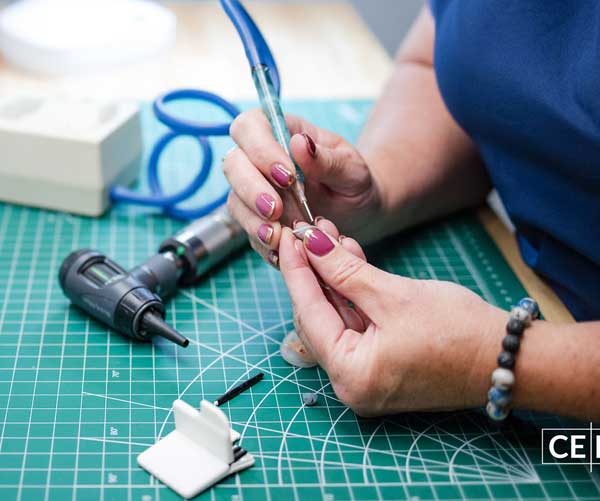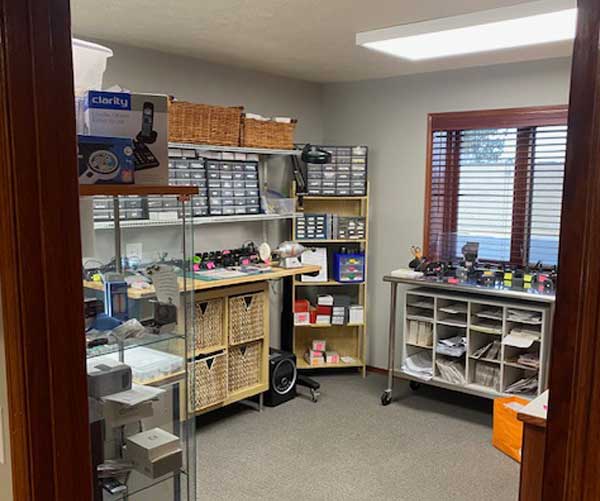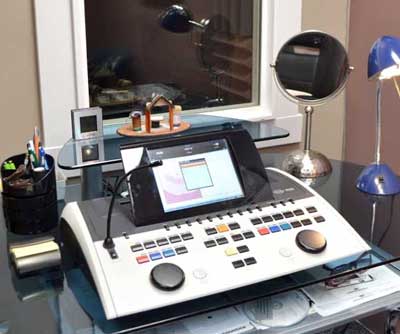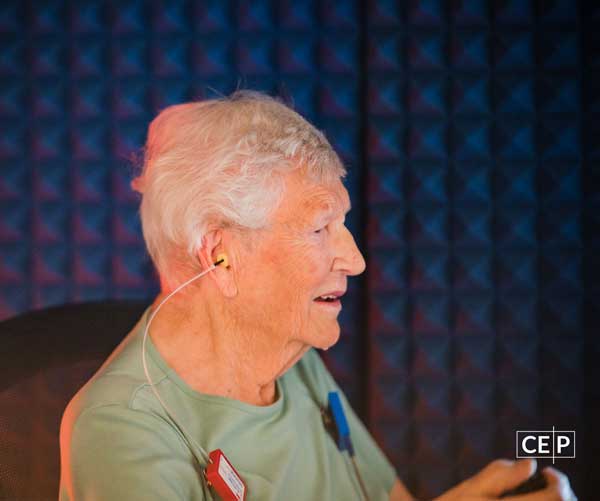Frequently Asked Questions
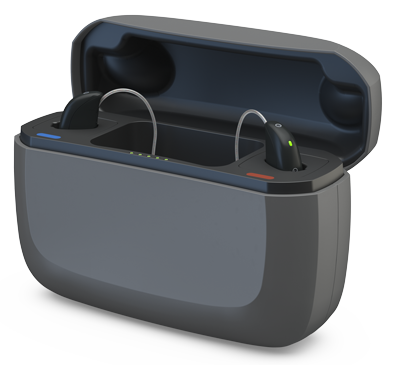 At Western Hearing Aid Center, we believe that better hearing leads to a better quality of life. Whether you’re considering hearing aids, noticing changes in your hearing, or simply seeking more information, we’re here to help. Understanding hearing loss and the solutions available can make a significant difference in your daily life.
At Western Hearing Aid Center, we believe that better hearing leads to a better quality of life. Whether you’re considering hearing aids, noticing changes in your hearing, or simply seeking more information, we’re here to help. Understanding hearing loss and the solutions available can make a significant difference in your daily life.
Below are answers to some of the most frequently asked questions about hearing health, hearing aids, and related topics. If you have additional questions, feel free to reach out—we’re always happy to assist!
 An audiogram is a visual representation of your hearing ability. During a hearing test, you’ll wear headphones while listening to a range of tones—from low-pitched to high-pitched sounds. The audiogram records the softest sounds you can hear at each frequency.
An audiogram is a visual representation of your hearing ability. During a hearing test, you’ll wear headphones while listening to a range of tones—from low-pitched to high-pitched sounds. The audiogram records the softest sounds you can hear at each frequency.
In addition to pure tone testing, a speech test is often included to determine the softest level at which you can hear words, as well as how clearly you understand speech.
 Traditionally, most insurance plans did not cover hearing aids or related accessories. However, as of January 2020, several plans now offer coverage either through direct billing or third-party providers. Our team will gladly verify your benefits before your appointment or purchase to help you make an informed decision.
Traditionally, most insurance plans did not cover hearing aids or related accessories. However, as of January 2020, several plans now offer coverage either through direct billing or third-party providers. Our team will gladly verify your benefits before your appointment or purchase to help you make an informed decision.
 Conductive Hearing Loss – Occurs when sound cannot travel efficiently through the outer or middle ear. This may be due to issues in the ear canal, eardrum, or the small bones in the middle ear (malleus, incus, stapes). Sound may simply seem quieter. This type of hearing loss is often treatable with medication or surgery.
Conductive Hearing Loss – Occurs when sound cannot travel efficiently through the outer or middle ear. This may be due to issues in the ear canal, eardrum, or the small bones in the middle ear (malleus, incus, stapes). Sound may simply seem quieter. This type of hearing loss is often treatable with medication or surgery.
Sensorineural Hearing Loss – This form of hearing loss originates in the inner ear (cochlea) or the auditory nerve. It may be caused by damaged hair cells, inner ear fluid issues, or nerve dysfunction. It results in both reduced volume and sound distortion. Sensorineural hearing loss is typically permanent and managed with hearing aids or assistive technology.
Mixed Hearing Loss – Mixed hearing loss is a combination of conductive and sensorineural types. It involves damage in both the outer/middle ear and the inner ear or auditory nerve, resulting in more complex hearing challenges than either type alone.
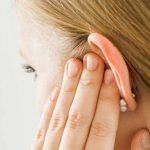 If you hear ringing, buzzing, clicking, pulsing, or other phantom sounds in one or both ears, you may be experiencing tinnitus. Tinnitus is the perception of sound when no external source is present. It’s a common condition and can be related to hearing loss, noise exposure, or other underlying health issues.
If you hear ringing, buzzing, clicking, pulsing, or other phantom sounds in one or both ears, you may be experiencing tinnitus. Tinnitus is the perception of sound when no external source is present. It’s a common condition and can be related to hearing loss, noise exposure, or other underlying health issues.
 Untreated hearing loss can impact more than just your ability to hear—it can also affect your brain health. Without regular auditory stimulation, areas of the brain responsible for hearing and speech comprehension may begin to decline. This can lead to difficulties with memory, concentration, and even an increased risk of dementia.
Untreated hearing loss can impact more than just your ability to hear—it can also affect your brain health. Without regular auditory stimulation, areas of the brain responsible for hearing and speech comprehension may begin to decline. This can lead to difficulties with memory, concentration, and even an increased risk of dementia.
There are also indications that untreated hearing loss can accelerate dementia.
“Brain scans show us that hearing loss may contribute to a faster rate of atrophy in the brain,” Lin says. “Hearing loss also contributes to social isolation. You may not want to be with people as much, and when you are you may not engage in conversation as much. These factors may contribute to dementia.”
As you walk, your ears pick up subtle cues that help with balance. Hearing loss mutes these important signals, Lin notes. “It also makes your brain work harder just to process sound. This subconscious multitasking may interfere with some of the mental processing needed to walk safely.”
 Hearing loss can affect people of all ages. However, certain groups have a higher risk, including:
Hearing loss can affect people of all ages. However, certain groups have a higher risk, including:
- Older adults (especially over age 60)
- Individuals with prolonged noise exposure
- People with a family history of hearing loss
- Children born with hearing conditions
- Workers in high-noise environments
Lastly 80% of the hearing impaired population do nothing to address their disability.
 If you notice any of the following symptoms, it may be time for a hearing evaluation:
If you notice any of the following symptoms, it may be time for a hearing evaluation:
- Difficulty hearing in noisy environments
- Frequently asking others to repeat themselves
- Ringing or buzzing in the ears (tinnitus)
- Needing to raise the volume on the TV or phone
- Feeling like people are mumbling
- Temporary hearing loss after loud noise exposure
Don’t ignore the signs—early intervention is key.
 Hearing loss can affect all ages. Some of the more common things that can impact your hearing are:
Hearing loss can affect all ages. Some of the more common things that can impact your hearing are:
- Hereditary factors
- Ear trauma or injury
- Illness or infection
- Prolonged noise exposure
- Natural aging process


